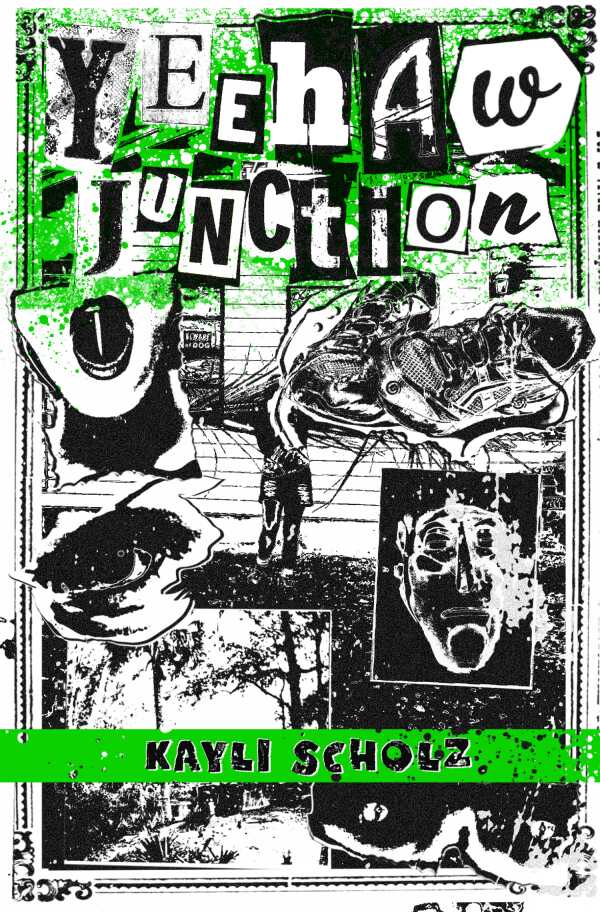Yeehaw Junction
A Novel
Kayli Scholz’s visceral Southern Gothic novel Yeehaw Junction channels rural decay with dark intensity.
Set in the desolate margins of rural Florida, where fractured families and neglected crossroads frame a grim descent into violence and corruption, the book centers Skeet, a twelve-year-old who makes the unsettling self-introduction “I’m gonna be a school shooter when I grow up,” anchoring the narrative in unease. Through his fragmented perspective, it exposes a community collapsing under neglect, addiction, and systemic failure, where a girl is missing and a toxic conspiracy roils.
The setting is rendered in stark, unflinching detail. Gas stations, dive bars, and sinister homemade videos are landmarks here, embodying a nihilistic vision of rural America that is both grotesque and disturbing. And the book’s structure mirrors the town’s instability. Its raw narration, interview transcripts, and media fragments are layered together, producing a dissonant collage that reflects the fractured reality of the residents. This shifting form blurs the line between confession, investigation, and cultural critique, intensifying the atmosphere of dread.
The characterizations are built on embodiments of desperation, violence, and survival. Skeet’s unnerving voice conveys both disturbing clarity and childlike confusion, while those around him—petty criminals, runaways, and opportunists—reflect the broader collapse of moral and emotional order. Their volatility reinforces the sense that danger lurks in every interaction, and that no figure can be trusted to provide stability.
Sympathetic characters are absent, and moral ambiguity and emotional detachment reign. The refusal to provide comfort or resolution shifts the novel’s weight onto atmosphere and form, privileging mood and structure over sentiment. The ambiguous conclusion further resists closure, echoing the novel’s thematic insistence on incompleteness and fracture.
A bleak, abrasive, and unflinching novel, Yeehaw Junction leaves an indelible impression through its persistent unease. It’s a dark contemporary noir confrontation of cultural malaise.
Reviewed by
John M. Murray
Disclosure: This article is not an endorsement, but a review. The publisher of this book provided free copies of the book to have their book reviewed by a professional reviewer. No fee was paid by the publisher for this review. Foreword Reviews only recommends books that we love. Foreword Magazine, Inc. is disclosing this in accordance with the Federal Trade Commission’s 16 CFR, Part 255.

